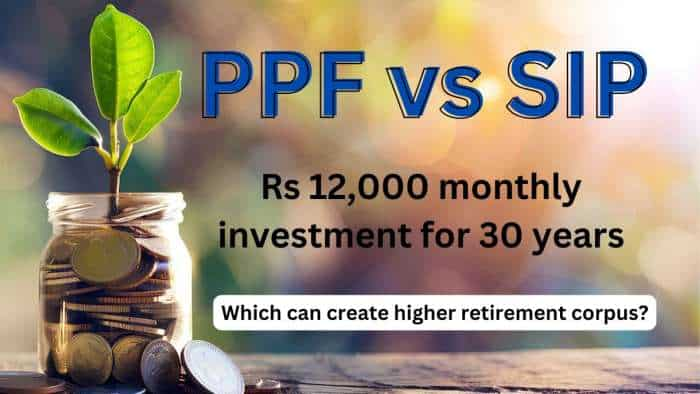Existing taxation structure for corporates very reasonable: Revenue Secretary Sanjay Malhotra
In an interview with PTI, Malhotra said the Interim Budget 2024-25 provides for continuity in taxation regime and the benefits given to taxpayers in the last years are showing results in the form of huge buoyancy in personal income tax.
)
The existing taxation structure for corporates with a 22 per cent tax is "very reasonable" when compared to an economy of the size of India and hence the concessional tax regime which was in force for four years for new manufacturing units was not extended beyond March 2024, Revenue Secretary Sanjay Malhotra said.
In an interview with PTI, Malhotra said the Interim Budget 2024-25 provides for continuity in taxation regime and the benefits given to taxpayers in the last years are showing results in the form of huge buoyancy in personal income tax.
"Taxpayer services have been a major focus of the government and this will continue going forward. Taxpayer services includes rationalisation, simplification and trust-based taxation with less scrutiny and more pinpointed assessments and use of technology. We are hopeful taxpayer services will continue to improve helping us in compliance and improving tax collection efficiency," Malhotra said.
To a question on why the concessional tax regime for corporates was not extended beyond March 31, 2024, Malhotra said the scheme was introduced in 2019 and companies were given a long time to set up new units to avail of the concessional 15 per cent rate of tax.
"A long period of four years was given. This is the time that a large company put on the ground right from conceptualisation, planning, raising of funds, sufficient time was given it was extended by another year till March 31, 2024, because of Covid. These investments have a long gestation period.
"The existing taxation of our country now for corporates at 22 per cent, when compared to the economy of our size, is very, very reasonable. In light of all these, it was felt that this was the date that it was to sunset and it should sunset," Malhotra said.
The government in 2019 announced that any new domestic company incorporated on or after October 1, 2019, making fresh investment in manufacturing, will have the option to pay income tax at the rate of 15 per cent if they commenced their production on or before arch 31, 2023. The date was extended till March 31, 2024, in the Budget presented on February 1, 2023.
"Those new manufacturing companies which are able to commence their operation before March 31, 2024, will continue to get that benefit," Malhotra added.
In September 2019, the government announced a cut in base corporate tax for then existing companies to 22 per cent from 30 per cent; and for new manufacturing firms, incorporated after October 1, 2019, to 15 per cent from 25 per cent.
Companies opting for these new tax rates had to forego all exemptions and incentives. The effective tax rate for existing units, after considering surcharges and cess -- such as Swachh Bharat cess and education cess, which are levied on top of the income and corporate tax rates -- is 25.17 per cent as compared to 34.94 per cent earlier.
In the Interim Budget, the Government has announced withdrawal of outstanding small tax demands, some even dating back to 1962, of up to Rs 25,000 till 2014-15 in respect of income, wealth and gift taxes. There are about 1.11 crore such disputed demand entries and the aggregate tax demand involved is Rs 3,500-3,600 crore.
"These are not in the nature of disputes, these are more in the nature of non-reconciled tax demands and some are very old. They will help in better tax administration," he said.
Catch the latest stock market updates here. For all other news related to business, politics, tech, sports, and auto, visit Zeebiz.com.
Get Latest Business News, Stock Market Updates and Videos; Check your tax outgo through Income Tax Calculator and save money through our Personal Finance coverage. Check Business Breaking News Live on Zee Business Twitter and Facebook. Subscribe on YouTube.
RECOMMENDED STORIES

Power of Rs 15,000 SIP: How long it will take to achieve Rs 7 crore corpus? See calculations to know

Largecap, Midcap Stocks To Buy: Analysts recommend buying L&T, Tata Motors, 3 other stocks for 2 weeks; check targets

Largecap PSU Stock for 65% Gain in New Year: Anil Singhvi picks PSU bank for long term; know reasons and target prices

SBI Latest FD Rates: PSU bank pays these returns to senior citizens and other depositors on 1-year, 3-year and 5-year fixed deposits
07:29 PM IST










 Revenue Secretary Sanjay Malhotra lays foundation stone of New GST Bhawan in Hyderabad
Revenue Secretary Sanjay Malhotra lays foundation stone of New GST Bhawan in Hyderabad GST revenues grow 11% to about Rs 1.6 lakh crore in August: Revenue Secretary
GST revenues grow 11% to about Rs 1.6 lakh crore in August: Revenue Secretary  India to press for automatic exchange of info on non-financial assets, properties at G20: Revenue Secretary
India to press for automatic exchange of info on non-financial assets, properties at G20: Revenue Secretary Govt proposes changes in income tax law for startups: Here's how it will help sector to boom, top official explains
Govt proposes changes in income tax law for startups: Here's how it will help sector to boom, top official explains  No timeline to remove old tax regime, Revenue Secretary Sanjay Malhotra says
No timeline to remove old tax regime, Revenue Secretary Sanjay Malhotra says